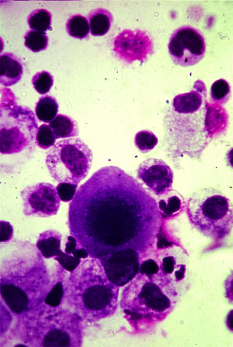Gene sweep finds cancer targets
 International researchers have identified over 5,000 variants of a tumour-protecting gene, potentially increasing the risk of cancer for many individuals.
International researchers have identified over 5,000 variants of a tumour-protecting gene, potentially increasing the risk of cancer for many individuals.
The discovery could pave the way for improved treatments and preventative strategies.
A new study, conducted by the Wellcome Sanger Institute in collaboration with The Institute of Cancer Research, London, and the University of Cambridge, focused on the BAP1 gene. This gene usually helps protect the body against various cancers, including those of the eye, lung lining, brain, skin, and kidney.
Researchers tested 18,108 possible changes in the BAP1 gene using saturation genome editing, a method where cells are genetically altered in a dish.
They found that 5,665 of these changes harmed the gene's protective abilities.
Individuals with any of these harmful BAP1 variants are over 10 per cent more likely to be diagnosed with cancer compared to the general population.
The study, published in Nature Genetics, is expected to help doctors diagnose and treat their patients more effectively.
The researchers have made their findings freely accessible, ensuring that they can be used immediately by healthcare professionals.
The comprehensive assessment of all possible variants also benefits individuals from diverse ethnic backgrounds, who have often been underrepresented in genetic research.
In addition to identifying high-risk variants, the researchers discovered that individuals with harmful BAP1 variants had elevated levels of IGF-1, a hormone and growth factor linked to both cancer growth and brain development.
This discovery suggests that IGF-1 could be targeted for new prevention and treatment strategies.
“This research could mean more accurate interpretation of genetic tests, earlier diagnoses and improved outcomes for patients and their families,” said Professor Clare Turnbull, clinical lead of the study.








 Print
Print